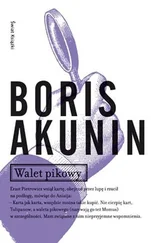We left in silence, and the commonest expressions on people’s faces were bewilderment or indignation. No one said goodbye to Prospero, not even his odalisques. He just sat there, completely crushed. And I should think so! How could this adored clairvoyant and self-appointed saviour of souls have been so fatally mistaken? He himself had introduced a dangerous maniac into the club and given him every patronage and favour – in effect, he had encouraged a murderer! I would not like to be in his skin.
Or would I? So help me, I believe the position of a deposed idol, who yesterday was exalted to the heavens and today is cast down, humiliated and trodden in the dirt, offers a gratification no less acute than is to be found in the most triumphant success. We Germans know about such things, because we have absolutely no sense of measure. The subtle sweetness of disgrace that is known only to the proud was felt very keenly by Fyodor Mikhailovich Dostoevsky, the most German of all Russian writers. It is such a pity that we have not had a chance to talk about literature. And now we never shall.
And so I conclude my final report, for I have fulfilled the terms to which I agreed. You can in turn report to your superiors that the epidemic of suicides in Moscow is now over. Attribute this achievement to your own efforts – I do not mind. I am not ambitious, it is not honours and a career that I require from life, but something quite different, something that I am afraid you cannot appreciate or understand.
Goodbye, Lieutenant-Colonel, remember me kindly. And I shall try to remember you kindly too.
Your ZZ
20 September 1900
1. Soon
2. Come
By Motor to Paris
At noon tomorrow a Russian sportsman will set out from Moscow to Paris on a three-wheeled motor vehicle. E.P. Neimless has set himself the goal of establishing a new distance and speed record for self-propelled carriages.
In his bold challenge Mr Neimless intends to cover the 2800 versts separating the capitals of the two friendly nations in twelve days, not including day-time or night-time halts or any halts that may be required for repairs or due to the poor condition of the roads. This latter circumstance, that is, the appalling state of the roads, especially in the Wisla region, is the greatest obstacle to the success of this hazardous venture. We all recall last year’s incident in which Baron von Liebnitz’s auto was shaken to pieces by the potholes near Pinsk.
The starting point of Mr Neimless’s journey will be Moscow’s Triumphal Arch. He will be escorted by his valet in a britzka, which will carry his luggage and spare parts for the three-wheeler. We shall be following the daredevil’s progress and printing telegrams received from points along his arduous route.
The Moscow Gazette , 22
September (5 October) 1900
p.4
II. From Columbine’s Diary
I wake in order to fall asleep
It turns out that I know nothing. Who I am, why I am alive or what life really is. Genji once quoted some ancient Japanese sage who said: ‘Life is a dream seen in a dream.’
The ancient Japanese was absolutely right. Only half an hour ago I thought that I was awake. That I had been asleep for many days and only woken when the light of the electric torch shone into my eyes and a worried voice asked: ‘Columbine, are you alive?’ And at that moment I dreamed that I awoke from a dream. I seemed to hear the sounds of the real world again, to see its living colours, and the glass bell jar separating me from reality was shattered. There was no Eternal Bridegroom called Death, no mysterious and alluring World Beyond, no mystical Signs, no spirits, no summons from out of the blackness.
For three days after I was almost snatched away by ‘death with a small letter’, I revelled in my imaginary freedom – I laughed a lot and cried a lot, I marvelled at the most common everyday nonsense, ate cakes and sewed a quite incredible dress. I pricked all my fingers very badly, I was working with such awkward material. Every time I cried out I felt even happier, because the pain confirmed the reality of existence. As if pain could not be dreamed!
Today I put on my stunning new outfit and was absolutely delighted with it. No one else has a dress like it. It is made of ‘devil’s leather’, it glitters and shimmers and crackles. Genji bought a driving suit of the same material for his motor journey, and I immediately fell in love with it.
The dress is absolutely unendurable. I always feel either hot or cold in it, but how it sparkles! Everyone in the street kept turning to look at me.
I was absolutely certain that the sun, the sky, the crackling dress, and the handsome man with the dark hair and the calm voice really did exist, that this was real life and I didn’t want anything else.
The gaudy fairground sideshow erected by that old liar Prospero had collapsed like a house of cards at the first breath of a fresh, real wind.
Genji escorted me to my door again, as he had done for the previous two days. He thought that after what had happened I was afraid to climb the stairs alone. I wasn’t afraid at all, but I wanted him to escort me.
He treats me like a porcelain vase. Before he leaves he kisses my hand. I am sure that he has feelings for me. But he is a gentleman and no doubt he feels bound by the fact that he saved my life: what if I do not spurn him simply out of a feeling of gratitude? How funny he is! As if gratitude had anything at all to do with love. But I like him even more for it.
Never mind, I thought. What’s the hurry? Let him go on his stupid motor trip. If something starts between us now, he won’t be able to test his oil-stove on wheels, and he wants to do it so much. All men really are still boys, no matter what their age.
After Paris I’ll really take him in hand. God willing, the oil-stove will break down a hundred versts from Moscow, and then he will be back soon, I fantasised. But I am prepared to wait three weeks, let him set his record. Life is long and there is so much time for happiness.
I was wrong. Life is short. And Genji was only a dream, like everything else – the sun, the sky, the new dress.
I have just woken up.
I came home, drank some tea, twirled in front of the mirror for a moment to admire the way the devil’s leather sparkled in the bluish light of the lamp. And then my eyes fell on a small volume in leather binding with gold-edged pages. I sat down, opened the book where it was marked and started to read.
It was a farewell gift from Prospero. A medieval German tract with a long title: The Secret Meditations of an Anonymous Author on the Experiences of his Life and What he has Heard from People Worthy to be Trusted . Two days earlier, when everyone walked out into the street in silence, leaving the Doge alone, and no one even said goodbye, I was touched by his imploring glance and I went back from the door, shook his hand and kissed him on the cheek – in memory of all that there had been between us.
He understood what my kiss meant, and he didn’t try to kiss me in return or take me in his arms.
‘Goodbye, my child,’ he said in a sad, formal voice which acknowledged that everything that used to be was over for ever. ‘You were the belated festival of my life, and no festival can last for long. Thank you for warming my weary heart with the glow of your sweet warmth. I have prepared a small gift for you – as a token of my gratitude.’
He picked a small volume up off the table and took a sheet of paper out of his pocket.
‘Do not read this treatise from cover to cover, it contains many things that are dark and obscure. At your age you should not burden your mind with such doleful wisdom . But you must read the chapter entitled “Cases in which love is more powerful than death”. Look, I’m marking it with this sheet of paper. And note the sheet of paper too, it is more than three hundred years old. Extremely precious paper from the sixteenth century, with the watermarks of the French king François I. Perhaps when you’ve read the chapter I’ve marked, you might feel like writing me a short letter. Use this sheet of paper – adorned with your writing, it will become one of the most precious relics of my empty and worthless life . . . And do not think badly of me.’
Читать дальше











